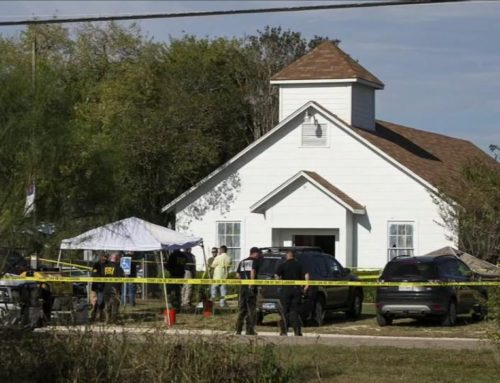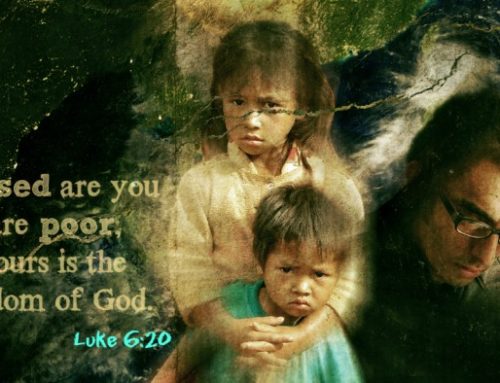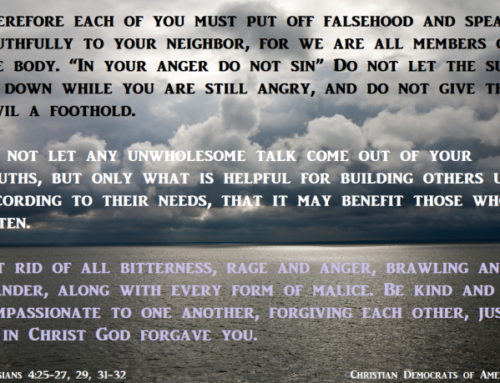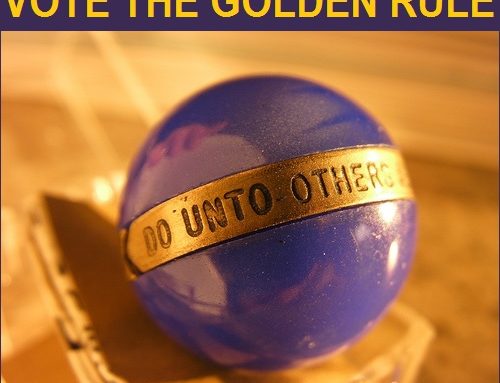We have heard a lot through the years about the supposed “War on Christmas.” Those who raise their angry voices about the “War on Christmas” also proclaim year after year that tax and economic reforms which further the already out of control wealth inequality in our country and favors their rich donors and their own bank accounts, is “a great big Christmas present for America!” But it is time now to remind us all just what – and who – Christmas really is about.
If you are going to say “Merry Christmas” it might be a good idea to know whose birth you are celebrating. If you are going to say “Jesus is the reason for the season” you might want to understand what this baby grew up to teach. Then, after this careful examination, decide if you want to stand by the spirit of Christmas and all He stands for.
Remember when you hear politicians proclaiming “Merry Christmas!” from the hilltops, that those things which are against these characteristics are against the Christmas Spirit. They are Ebenezer Scrooge. They are anti-Christmas. They are anti-Christ.
Love
When asked what the greatest commandment of all was, Jesus’ answer shocked the Pharisees…love! Loving God and loving your neighbor. Immediately the Pharisees began trying to justify their own prejudices, asking “Who is my neighbor?” To bring his point home, Jesus used an illustration of the Good Samaritan, to both show that a lowly, “sinful” Samaritan could be more righteous than a priest, and that the beat-up, down-trodden man on the side of the road was indeed their neighbor. And if they didn’t love and have mercy on that neighbor – all of them – as themselves, they missed all the law and prophets. Love is at the heart of all Christ is – the opposite of it is all he is not.
Luke 10:25-37
25 On one occasion an expert in the law stood up to test Jesus. “Teacher,” he asked, “what must I do to inherit eternal life?”
26 “What is written in the Law?” he replied. “How do you read it?”
27 He answered, “‘Love the Lord your God with all your heart and with all your soul and with all your strength and with all your mind’; and, ‘Love your neighbor as yourself.’”
28 “You have answered correctly,” Jesus replied. “Do this and you will live.”
29 But he wanted to justify himself, so he asked Jesus, “And who is my neighbor?”
30 In reply Jesus said: “A man was going down from Jerusalem to Jericho, when he was attacked by robbers. They stripped him of his clothes, beat him and went away, leaving him half dead. 31 A priest happened to be going down the same road, and when he saw the man, he passed by on the other side. 32 So too, a Levite, when he came to the place and saw him, passed by on the other side. 33 But a Samaritan, as he traveled, came where the man was; and when he saw him, he took pity on him. 34 He went to him and bandaged his wounds, pouring on oil and wine. Then he put the man on his own donkey, brought him to an inn and took care of him. 35 The next day he took out two denarii and gave them to the innkeeper. ‘Look after him,’ he said, ‘and when I return, I will reimburse you for any extra expense you may have.’
36 “Which of these three do you think was a neighbor to the man who fell into the hands of robbers?”
37 The expert in the law replied, “The one who had mercy on him.”
Jesus told him, “Go and do likewise.”
Servanthood
Contrary to what we have heard over the past year, to be GREAT in Jesus’ terms is to be a servant. We don’t always have a clear definition of a word in Biblical terms, however, Jesus addressed “great” very directly. He showed by example and taught exactly what characteristics we should value and consider “great.” In Mark 10:35-45, we have an account of James and John asking for more power and authority. They wanted to be given a place at God’s right-hand in heaven, which is probably the highest power-position anyone has asked for (unless it is to be God Himself!). When the other disciples are indignant that they would ask this, Jesus told them greatness is measured by the scale of service and humility. He instructs that to be the greatest actually means to become lowly and centered on serving others, and this is not the only account of Christ’s very specific teaching on this.
He washed the feet of his disciples as an example of leadership. In Matthew 23:11-12, He says the one who wants to be greatest must be the biggest servant of all and that anyone who humbles themselves will be exalted. He tells the rich young ruler that he should sell what he has and give it to the poor. Jesus was not saying every successful, rich or powerful person should give up having authority and sell all their possessions, but He spoke in parables and in examples that we could easily understand. By doing this He gets a strong point across about values and also characteristics that should be valued. He makes it clear what is and is not a “great” attitude.
Humility
Mary’s Song
Luke 1:46-55
And Mary said:
“My soul glorifies the Lord
47 and my spirit rejoices in God my Savior,
48 for he has been mindful
of the humble state of his servant.
From now on all generations will call me blessed,
49 for the Mighty One has done great things for me—
holy is his name.
50 His mercy extends to those who fear him,
from generation to generation.
51 He has performed mighty deeds with his arm;
he has scattered those who are proud in their inmost thoughts.
52 He has brought down rulers from their thrones
but has lifted up the humble.
53 He has filled the hungry with good things
but has sent the rich away empty.
54 He has helped his servant Israel,
remembering to be merciful
55 to Abraham and his descendants forever,
just as he promised our ancestors.”
Giving
As we all know, the Wise Men and visitors brought gifts to baby Jesus, all of them significant and symbolic of his life, death and resurrection. Christmas is supposed to be a season of giving, and that spirit comes from not only the Christmas story, but the life of Jesus Christ which we celebrate. His ministry and teachings were full of giving, and commands relating to how we are to give, even to those who are taking from us. According to the radical ideas of Jesus, we should not only be willing to give freely to all who are in need, but to those who take advantage – Matthew 5:41 If anyone forces you to go one mile, go with them two miles. 42 Give to the one who asks you, and do not turn away from the one who wants to borrow from you.
We have a lot of work ahead of us in the New Year, but for now we hope you can take some time to dwell on the reality of Christ, the spirit of Christmas and all He truly stands for. There is no “War on Christmas” but there IS a war on these characteristics. We can only do our best to put them into practice and carry the true spirit of Christmas with us every day.
Oh, and Merry Christmas.
Join us for the New Year’s fight ahead
Christina Forrester is the Director and Founder of Christian Democrats of America. Follow her on Twitter and Facebook.





























































